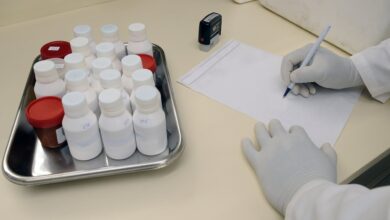
In the realm of women’s health and reproductive choices, one topic that often raises questions and concerns is the timing of one’s menstrual cycle after undergoing an abortion. It’s a matter of great importance, and we understand that the information you seek should be clear, accurate, and comprehensive. In this article, we will explore the factors that influence when you can expect your period after abortion to return, providing you with valuable insights to ease your concerns and guide you through this sensitive journey.
The Menstrual Cycle Basics
Before diving into the specifics of when to expect your period after abortion, it’s essential to understand the basics of the menstrual cycle. A typical menstrual cycle lasts about 28 days, although it can range from 21 to 35 days for many women. This cycle involves hormonal and physical changes in a woman’s body.
The menstrual cycle can be divided into four main phases:
1. Menstruation (Days 1-5)
The menstrual cycle begins with menstruation, which is the shedding of the uterine lining. This is what most people commonly refer to as their “period.” It typically lasts for three to five days, though it can vary.
2. Follicular Phase (Days 1-13)
Following menstruation, the body enters the follicular phase. During this time, the pituitary gland releases follicle-stimulating hormone (FSH), encouraging the ovaries to produce mature eggs. This phase varies in length but generally lasts until ovulation.
3. Ovulation (Around Day 14)
Ovulation is the release of a mature egg from one of the ovaries. This usually occurs around the middle of the menstrual cycle. It’s the most fertile period for a woman, as conception is most likely to happen during this time.
4. Luteal Phase (Days 15-28)
After ovulation, the body enters the luteal phase. During this phase, the ruptured follicle transforms into the corpus luteum, which produces progesterone. Progesterone prepares the uterine lining for a potential pregnancy. If pregnancy doesn’t occur, progesterone levels drop, and menstruation begins again, starting a new cycle.
Now that we have a basic understanding of the menstrual cycle, let’s delve into the specifics of when you can expect your period to return after an abortion.
The Timing of Your Period After Abortion

The timing of when your period returns after an abortion can vary from person to person. It’s influenced by several factors, including the type of abortion you had and your individual body’s response. Here are the key considerations:
1. Type of Abortion
The method used for the abortion plays a significant role in when your period will resume. There are two primary methods: medication abortion (also known as the abortion pill) and in-clinic abortion.
- Medication Abortion: If you had a medication abortion, it’s typical for your period to return within four to six weeks after the procedure. This method involves taking medication to induce a miscarriage, and the timing can vary based on how long it takes for your body to expel the pregnancy tissue.
- In-Clinic Abortion: In-clinic abortions can be further divided into two types – aspiration abortion and dilation and curettage (D&C). The timing of your period’s return can vary between these two methods. Typically, it may come back within six to eight weeks.
2. Individual Variability
Every woman’s body is unique, and the timing of your period’s return may depend on individual factors. Hormonal changes, stress levels, and overall health can all influence when your menstrual cycle normalizes.
3. Breastfeeding
For women who are breastfeeding, the return of their period can be delayed. Breastfeeding suppresses the hormones that trigger ovulation, which can lead to a longer interval before menstruation resumes.
4. Contraceptive Use
If you begin using a contraceptive method after your abortion, this can also affect the timing of your period’s return. Some contraceptives, such as birth control pills, hormonal IUDs, or implants, can regulate your menstrual cycle.
5. Complications
In some cases, complications or infections post-abortion can affect the timing of your period. It’s crucial to follow your healthcare provider’s guidance and promptly address any concerns.
What to Expect During Your First Period After Abortion
When your period does return after an abortion, it’s essential to be prepared for potential changes in your menstrual cycle. You may experience:
- Irregular periods: Your first few cycles may be irregular, with variations in the length and flow.
- Heavier bleeding: The first period can be heavier than your usual flow. This is a common occurrence.
- Emotional changes: You might experience emotional changes or mood swings due to hormonal fluctuations.
- Pain or discomfort: Some women report increased cramping or discomfort during their first post-abortion period.
It’s important to note that these changes are often temporary and should normalize as your body readjusts.
FAQ’s
How soon can I expect my period after the abortion?
The timing of your period after abortion can vary, depending on factors like the type of abortion and your individual body’s response.
Is it normal for the first period after abortion to be irregular?
Yes, it’s common for your first post-abortion period to be irregular in terms of flow and length.
Can breastfeeding affect when I get my period after abortion?
Breastfeeding can delay the return of your period as it suppresses ovulation-triggering hormones.
Do complications post-abortion impact the timing of my period?
Yes, complications or infections post-abortion can influence when you get your period. It’s crucial to address them promptly.
Conclusion: The timing of your post-abortion period varies due to factors like abortion method, individual differences, and health considerations. Your unique experience is part of your body’s natural healing.
- For more insights, visit our Homepage.


